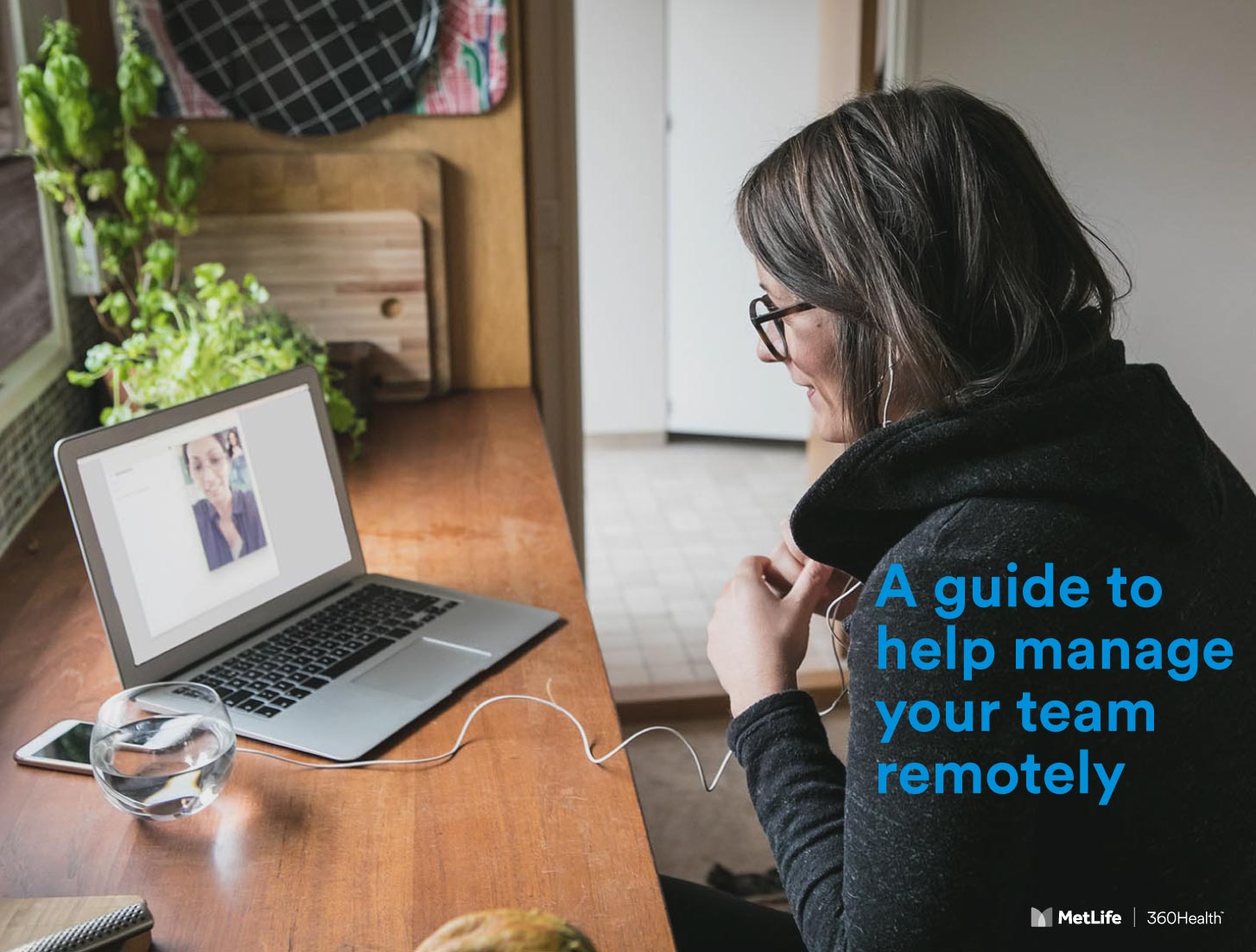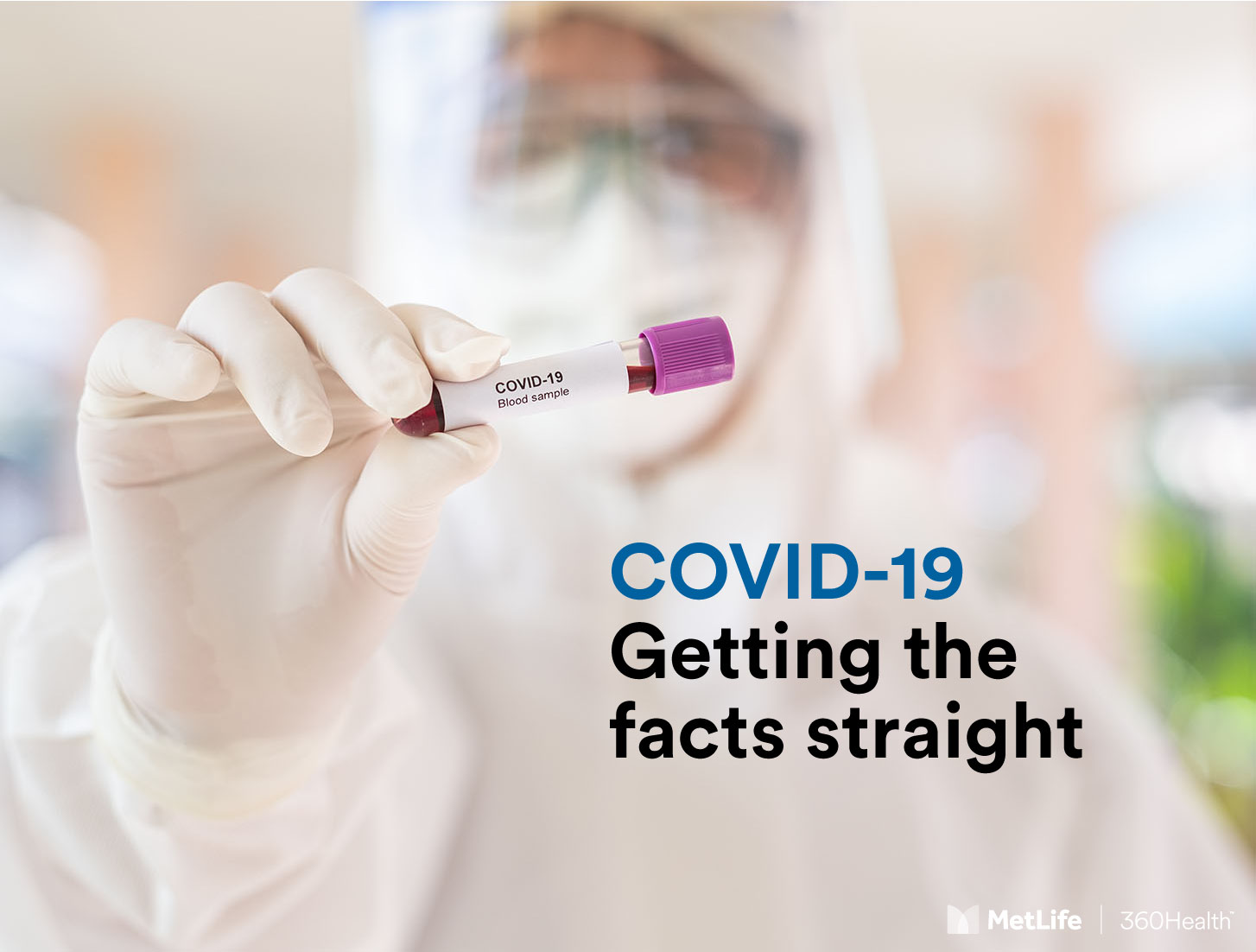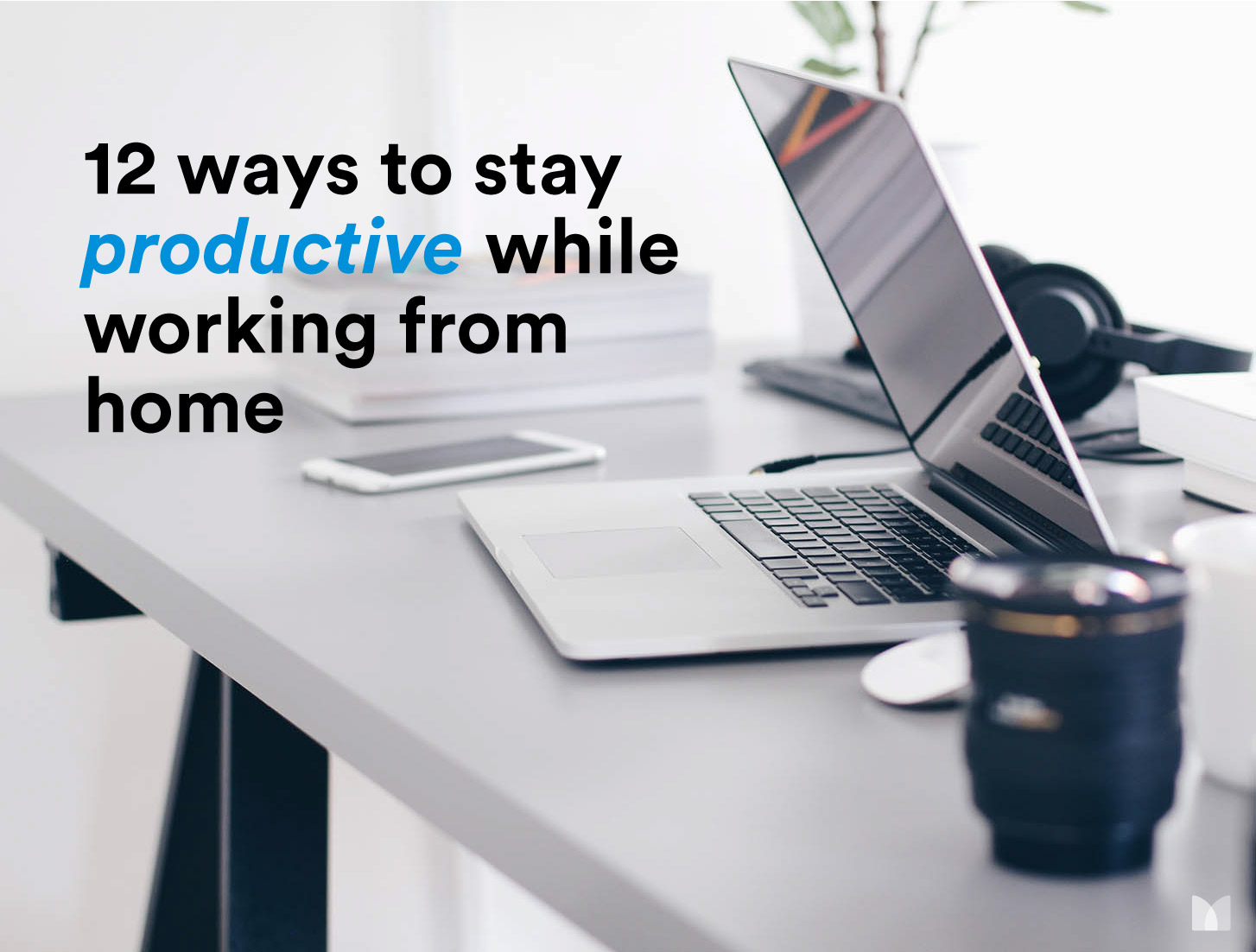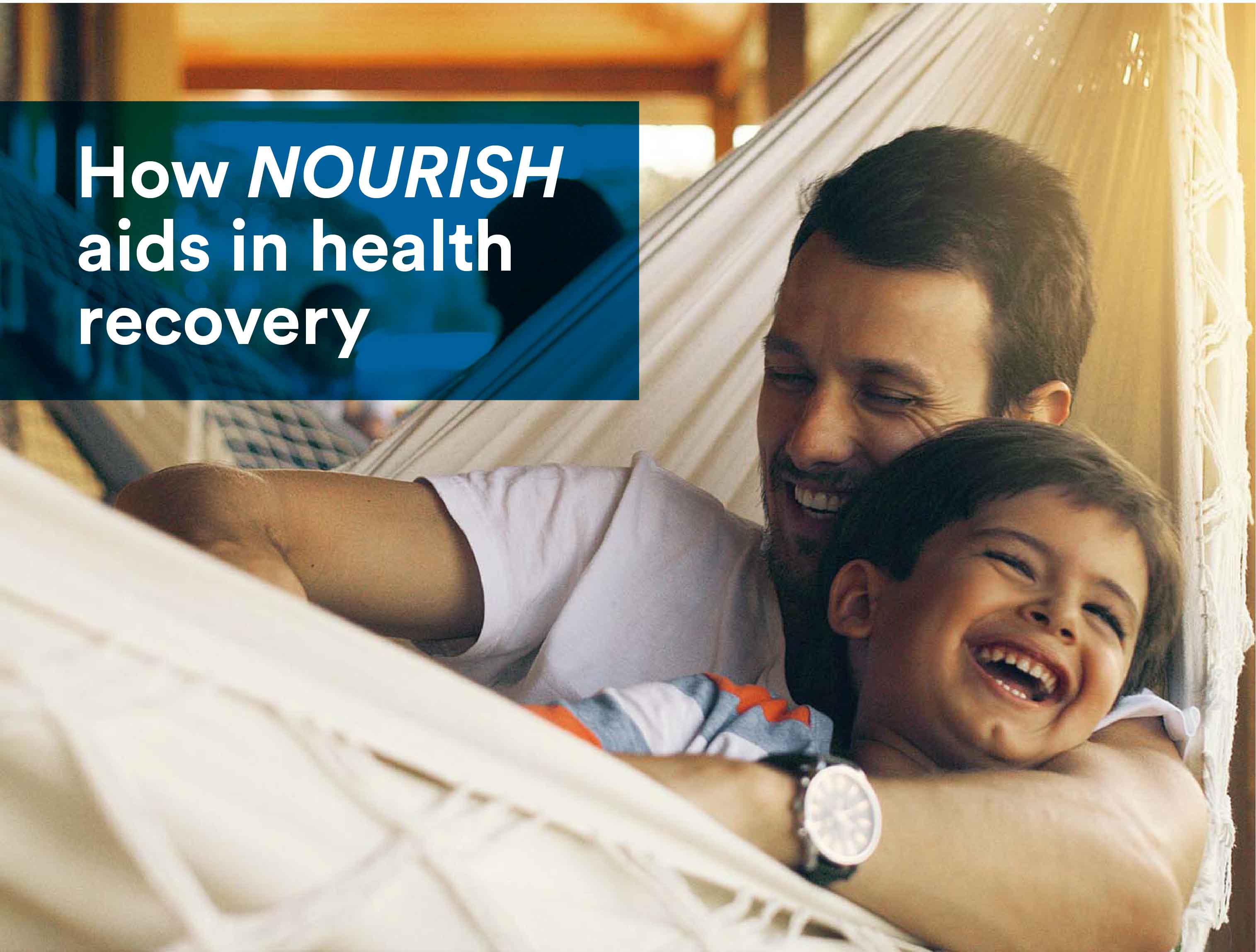
MetLife:
Today I'll be joined by Jamie Vickers and by Dr. Benson Riddle. Jamie Vickers is the Director for Teladoc Health Australasia, he and his team drive awareness of the Teladoc services and work closely with their partners to support maximizing the value and the impact of the Teladoc services. We're also joined by Dr. Benson Riddle. Dr. Benson Riddle is the Chief Medical Officer for Teladoc Health Australasia, and a currently practicing general practitioner. Benson is responsible for clinical governance, clinical quality, and the oversight of Teladoc's network of clinicians.
MetLife:
MetLife has recently launched 360Health, which is an end-to-end health and recovery program, looking at trying to provide support to our customers from prevention, all the way through to ongoing support when they do need to claim on their life insurance. The MetLife 360Health Virtual Care program is designed to be an early detection support program for our customers, so they can get access to particular services to support their health and get a better understanding of their diagnosis, of their condition and also any treatment that they might need.
MetLife:
What we'd like to do is explore around the actual service offering. And we're very excited at MetLife to be partnering with Teladoc, to provide the 360 Health Virtual Care program. So over to you, Jamie and Benson, I'd really like you to explain in a bit more detail, the components that we'll be getting for our customers at MetLife.
Jamie Vickers:
Of course, yeah. So the 360 Health Virtual Care program takes different components of an online patient experience and wraps it all up into one, I guess, one program, one entry point and one simple way for MetLife members to start an online health journey and to be connected into different programs depending on their needs.
Jamie Vickers:
So those four key elements to the program are, starting with our expert medical opinion program. So this is essentially a virtual second opinion, where we can connect MetLife members or eligible MetLife members, with leading experts from around the world, to get a second opinion on any physical diagnosis that they might have. And this ranges from your critical conditions like cancer or heart related conditions, or stroke, neurological, et cetera, right through to your more, what we call disruptive condition. So it might be chronic pain, it might be an orthopedic condition, through to ear, nose and throat conditions, skin conditions, even severe migraines. So we're able to review that full spectrum of physical conditions, and we do that by consulting with our global network.
Jamie Vickers:
So we have a network of 50,000 experts across the world, and we tap into that database to match patients to the right type of expert. So we match them to the expert who has the most experience in dealing with that particular condition. We also have our mental health assist program, which is obviously helping people with mental health conditions. And that program is designed to assist people in ways in which they may struggle within the public or private system. So the idea of the program is we want people to come in and to be appropriately assessed, so we can really understand what's driving their symptoms and what is the most appropriate treatment. And we do this by connecting the patient initially with a mental health nurse who will essentially become their advocate. Once we've done that, and we've had that initial assessment, we will then match the patient to a psychologist and/or a psychiatrist, to have a very detailed assessment via video call. So using the telehealth technology.
Jamie Vickers:
That appointment is made within a few days. So what we might be seeing in the public space at the moment, of maybe in extreme cases, six month wait times to see a psychiatrist, we're actually able to do that within 10 days because of the efficiencies that telehealth provides us. Once we've got those assessments complete, we then give the individual a very clear, detailed outline of what their condition is and what the actual treatment plan should be. And that would obviously review whether there's any medication that's required and obviously what type of therapy may be required for that individual. And then if there's therapy required, we can help connect the patient in with one of our psychologists, leveraging the Medicare mental health plan.
Jamie Vickers:
One of the benefits of COVID is that it has pushed the government to extend the offering of the Medicare mental health plan, which was 10 sessions covered by Medicare, into the telehealth space and they've also doubled the amount of sessions. So you can have up to 20 sessions a year via telehealth, all covered by Medicare. So that's our expert medical opinion and our mental health program. We also have a GP online program. This is connecting patients very quickly, so within a couple of hours via video or via phone with our team of Australian doctors. That program is not designed to replace the treating doctor, so to replace the treatment GP, it's designed to support them and give patients or MetLife members, the option to tap into and get answers to quick questions that they may not be sure about whether it's worth going to their GP for, or it's a simple question that doesn't require any prescriptions or any referrals. That's a great option for them there. And then the fourth option, sorry, is our nutrition program.
Jamie Vickers:
So this is designed to connect people via video, very quickly again, so everything's done efficiently, and this is connecting them with a team of Australian accredited dietitians. So they'll have a very detailed intake via video, and at the end of that, once we've understood the individual situations and what their goals are, we'll then provide a bespoke or a tailored nutrition plan for that individual to be able to follow, with very clear, clear goals. So they're our four elements of what we call our virtual care program. I might pass to Benson to just talk about how that might look in a real life situation.
Benson Riddle:
Yeah, thanks, Jamie. I think the exciting thing about this from my perspective as a general practitioner, is just how this can really be used for whole of patient care. We're a general advice service, the GP online, as in we're not able to refer, we're not able to provide prescriptions and we don't want to be that, we certainly don't want to be there to replace your treating GP. We can do that quickly because it's all done by telehealth and we can offer that promptly and with you from the comfort of your own home. We can add a lot of help.
Benson Riddle:
Now, even last week, we had a patient call in on a video consult with a query around asthma and diagnosis and something that was going on relatively acutely, nothing severe at the time, but that patient needed some advice. And the GP was able to reassure them at the time, tell them probably what was likely going on. And although there was nothing that needed to be done there at seven o'clock at night, but they really should go and see their GP the next day. So that patient then got the reassurance they needed, they knew what was happening, and they also knew that it was important for them to go and see their own GP the next day. This is the exciting thing for me and my GPs that are working as part of this, that we can actually start pointing people in the right direction and getting them to utilise these other services. Everything's there, right there in front of their eyes, on the portal.
MetLife:
It really sounds like the whole benefit of virtual care is that it can be done from the comfort of your own home, and that you can actually connect with not just one doctor, but specialties across, as you say, across the globe, but also across all the different areas of expertise, which really will help customers get the best outcome and hopefully the best benefit for their health. So Jamie, this might be a question for you, which is really around the offer, MetLife 360 Health Virtual Care offer, we know that there are other services provided across different components. What are some of the unique parts of the offer that MetLife will be providing through Teladoc and through the virtual care program?
Jamie Vickers:
Sure. Yeah, we've been in the Australian market now for over 10 years, we've been operating globally for 30 years and we focused a lot of our attention on the expert medical opinion, and that was our hero product coming into this market. And we've had, and continued to this day to have some incredible results in terms of changing diagnosis and changing treatment. We added a few years ago, the mental health assistant program. And again, that has had some extraordinary results in terms of getting people access to the experts they need quickly, getting them better outcomes, whether getting back to daily function or getting them back to work. But we now realize that we can go much broader than this and there are other aspects of virtual care that make complete sense in general, but also within the life insurance space or that employer superannuation space, and that is that the GP component is critical.
Jamie Vickers:
Now we don't want to replace the GP, as Benson has said, what we want to do is be there to support them and give patients another option to access GPs. So we've enhanced and develop a GP online service, where people can come onto our portal, onto our app and book an appointment with a GP. So that can be via video, that can be via phone, and that's done within a couple of hours. So that's a significant enhancement to what we've been delivering previously in the Australia market. And then the other new component is the nutrition. And nutrition for us, is a key addition to our service suite because it connects into our mental health program and it connects into our physical program with the expert medical opinion because a healthy diet is key to mental health. A healthy diet is key in many respects to broader good physical health. So really integral component virtual care program now. So these four areas are certainly enhancing what we're offering within the Australian market.
MetLife:
Moving on from there, so if we look at this from a value add for our advisors, in this instance in the retail advice space, can you tell us a little bit about what they're getting and the value add for their customers, and also anything that you've got along the lines of any research or anything else that might've been undertaken. I can certainly share some insights that we've seen afterwards, but anything from your perspective as to what advisors see has been the true value of this service offer.
Jamie Vickers:
Sure. Yeah. We've been working with financial advisers for many years now and really our promise to them and what MetLife are bringing to them, is the opportunity for them to provide a deeper level of protection for their clients. So that when someone's suffers some sort of injury or illness or condition, yes, they need the financial support to see themselves through that, and to make sure that everything is taken care of, bills, et cetera, but there's the physical side.
Jamie Vickers:
So you've got to be able to deal successfully with what happens to you from a physical perspective. And that's where we step in, we enable advisors to now offer a solution to their clients, where they're providing physical and financial protection. And that equals more value. And clearly selling insurance is not necessarily the easiest thing to do in the world, so enhancing that value proposition is critical to this. And I think a key part to what we bring is the opportunity for individuals to extract more value from that purchase. So I often refer to this as enabling the policy holder to claim more on their policy. Now, often insurers don't necessarily want to talk in those sort of terms, but this is enabling more claims without there being, I guess, the core claim on the product.
Jamie Vickers:
So if someone uses the GP online, or someone uses the mental health program or uses the expert medical opinion program, they're getting much more value, and in many cases, immense value from that purchasing decision. And therefore they're going to retain that policy longer. And therefore the retention benefits flow through to the advisor and that trail commission is much more stickier. So I think that's a key benefit, the whole retention piece. And also, I think it's worth touching on the sustainability question. I was with some advisors last week, and this question of sustainability came up and they're really keen on insurers being sustainable. They don't want to be passing on significant premium increases back to their policy holders.
Jamie Vickers:
To manage the risk profile within our customer base and avoid premiums going up, you can either price those individuals out of a policy, and no one wants that, we want to be able to offer insurance to everyone, or you manage the underlying risk profile of that base of customers. And that's what MetLife recognize with this, is that with these virtual care solutions and the ability to access the right type of clinicians, much easier and much quicker, we're going to get people access to better care, and they're going to get better outcomes. And that is going to manage the risk profile of that base and hopefully in time, make it a more sustainable product.
MetLife:
Thanks Jamie. And certainly from MetLife's own research perspective, we've seen a very close link from customers actually saying they want to link their financial wellbeing, and they also have clearly demonstrated, or at least shown in that research, that there is a very, very strong link between their financial wellbeing and their mental health. So I think bringing these together in this virtual care program can certainly provide that extra element of support for those individuals. And also the other thing from our research, a very strong belief that around the concept of health span, rather than lifespan and really saying that people would rather live healthier for longer, rather than live just longer. And so I think bringing this together and giving people more access to better services to support their holistic health and wellbeing, really going help to contribute to improving that health span. On that front then, Benson or Jamie, can you tell us maybe a little bit more then at the client level, so at the end client, the customer who's actually a customer who has access to this, tell us some of the direct benefits that they would get.
Benson Riddle:
Well, I'll just say, so far, just in the first week of operation, certainly from the GP online service, we're seeing really happy patients who are getting answers to questions really quick. Telehealth is there certainly with their GPs, but it's still sometimes taking quite a number of days or sometimes a week still to get a telehealth consultation with their own GP. So we've seen some very happy patients who are really getting answers to questions or getting the reassurance that they may have needed to get from their GP. And we've also seen some that realized that we told that they really did need to see their doctor within the next day or two, so they've got onto that and sought an urgent appointment. So that's just in the GP online space. We've also had couple of nutrition assessments and some very, very happy customers who got some fantastic individualised diet plans that are unique to them. So this is not a copy and paste job, this is a dietician working out what's needed for them, what they like and dislike, and putting together a plan that is just for them.
MetLife:
Thanks Benson. And Jamie, anything else from your perspective, around the service? And we've been looking at this, this is at no cost to the end customer, and it's also something that's available to them, not just if they're claiming through their insurance, but also whilst they're healthy. And a lot of the other includes too. And I might again hand over to you Jamie or Benson, just to maybe walk through some of those and even who's covered under this, from that perspective.
Jamie Vickers:
Yes, that's right. We offer access to partner and children in this program. So it's not just the policy holder themselves, so it's a family benefit. There's no cost to the individual in using our services, so the only cost that they may experience is if we conduct a review and they're required to do some additional testing, potentially there would be some costs there if it's not covered by Medicare. Essentially there is no cost to them using this. There's no limit to the amount of times they can use it. They can use it as many times as they like. And there's no pre-existing condition exclusions or exclusions whatsoever. So everyone that's eligible, gets access to all the services an unlimited amount of time.
Jamie Vickers:
And I think that the overriding benefit for me, is that eligible MetLife members now get access through a digital front door, to a range of health care benefits. So they can come in through one access point, through our portal, through our app and be taken on an online journey without having to think about it, without having to go from a psychologist, to a psychiatrist, to an orthopedic expert, back to the GP, it's all taken care of through one entry point and we make it as seamless and as simple as possible for the individual.
MetLife:
It sounds fantastic. Thanks, Jamie. And certainly one of the other areas that I think is a really big difference, is that lag between booking a service and actually getting access to the service. Where we can be well ahead of what you might get in the, dare I say it, the real world, where it could take months to get into see particularly a psychiatrist or psychologist. Whereas the virtual care program can cut that down dramatically, which are again, I think is a great benefit to the end customer, having to not wait as long.
MetLife:
So Jamie, just from an outcome perspective, can you talk us through what people might expect to see when it comes to a change in diagnosis or perhaps a change in treatment? And can you describe some of those outcomes that you've been seeing across the service over the last number of years?
Jamie Vickers:
Yeah, of course. So with all programs, speed and convenience is clearly one of the key benefits, but we make sure that every service that we put together is as clinically sound as it possibly can be. We make sure we engage with the leading clinicians in that field. And what that enables us to do is drive fantastic clinical outcomes or fantastic outcomes for the patients. And so some examples of that, we look at the expert medical opinion program, we're looking at modifications in diagnosis in around 20 to 30% of cases, we're looking at modification of treatment in about 40 to 50% of cases. And that can be relatively minor, right through to someone's been recommended surgery and we've reviewed the case and have suggested that surgery is going to have no benefit here over placebo.
Jamie Vickers:
And a great example of that, if we look at spinal surgery, we review 20% of our cases are for spinal surgeries, 40% of those cases that were reviewed for spinal surgeries, we are recommending that someone doesn't have surgery. So people are coming to us having been recommended surgery, we're suggesting that that's going to have no impact for them. So a huge change in outcome, a huge change in the rehabilitation within that particular condition. And then if we look on the mental health side, it's even more extreme, from a modification of treatment and diagnosis. So treatment, we're looking at about 90% of cases, diagnosis, we're looking at about 70% where we have a modification. And medication, we change that the medication in about 85% of cases that we review.
Jamie Vickers:
So there's some dramatic impacts from an outcome perspective, DAS score, so depression, anxiety, and stress scores, where it's a globally recognized system of understanding the severity of individual symptoms from a mental health perspective, we're reducing those within a three-month period by about 60%, it's a huge impact. As I said before, it's speed, it's convenience, but it's the quality of the clinicians that we are connecting individuals with.
MetLife:
Cool. Thanks, Jamie. And Benson, do you have anything else to add, or can I head to the wrap up?
Benson Riddle:
I'd just reinforce Jamie's notion of the quality of the clinicians that we've got. We've got some of the best of the best and they're going to give you comprehensive answers, they're going to look at your whole body and they're going to make sure that you get to utilize all the different services that are at your disposal.
MetLife:
Great. Thank you, Jamie, thank you. Benson. Look, just to wrap up, I think it's clear that we've got an extensive service that is available to our customers and certainly for the advisors to provide access to their own customers as well. So we're very excited to be working with Teladoc and really like to thank Benson and Jamie for their time and insights into this podcast today. And if you would like further information on MetLife's 360 health program, and in particular on the 360 health virtual care program, please feel free to speak to your business development manager, or you can contact MetLife directly on 1-800-523-523. And if you want to visit our website, particularly the 360Health website, that's at www.metlife.com.edu/360 health. And we also have a portal for the 360Health Virtual Care program, which is at www.360healthvirtualcare, all one word .com, which you can visit as well, which will give you some more information, also access to the portal.
MetLife:
So I'll close it off there. And again, thank you for your time and we hope that that has provided some valuable information for you around MetLife's 360Health Virtual Care program.
Disclaimer:
You've been listening to the MetLife podcast. To find out how you can partner with us, please visit metlife.com.au. This podcast has been prepared by MetLife Insurance Limited and intended for adviser and internal use only, and should not be provided to clients or attributed to MetLife in any advice provided. This material is intended to provide general information only and has been prepared without taking into account any particular person's objectives, financial situation, or needs. Any general information contained within or given during this podcast, is not intended to be investment or financial advice, nor a recommendation to invest in a financial product or undertake any particular strategy or course. In accessing this podcast, you agree to MetLife's podcast disclaimer terms, found that metlife.com.au.











